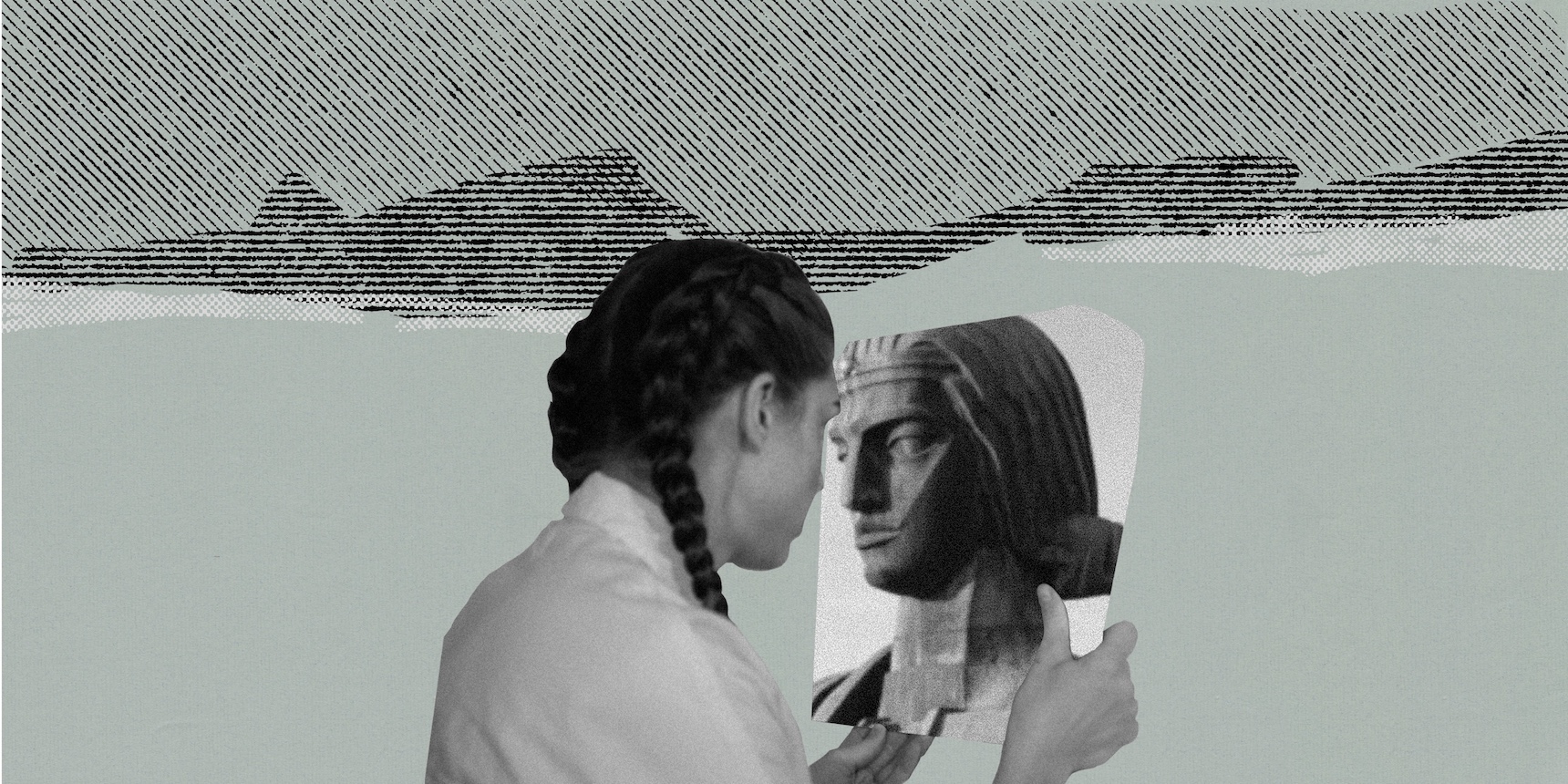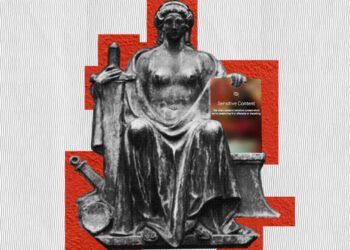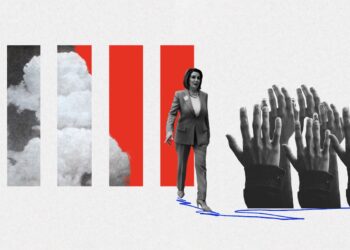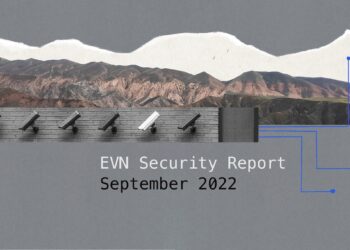

Since Armenians’ 2020 defeat in Artsakh (Nagorno-Karabakh), an existential crisis has erupted within the public discourse. The shockwave produced by this trying time has compelled Armenians to ask hard questions and face these issues.
With the backdrop of the war in Ukraine, Azerbaijan’s aggression against Armenia raises many questions that can be organized into seven points: impunity, neutrality, legality, security, unity, reality, and sovereignty.
Impunity
Armenians are exhausted from the constant existential threat by violent actors like Turkey, Azerbaijan and all affiliated groups that have massacred and persecuted Armenians around the world without the slightest restraint or reprisal from world powers, as if the destiny of an Armenian is to be silent, to die, to convert or to flee. With this kind of impunity, aggression against Armenians is common currency––validated—if not outright legitimized. The trivialization of the crimes then settles in the minds of the executioner, public opinion and the decision-makers of this world. On the executioner’s side, impunity cultivates hatred towards Armenia.
Regarding public opinion, impunity rhymes with indifference and laziness of thought. Regarding the decision-makers of the world, impunity for the crime embeds itself in the long term in institutions and the international order, mediating state relations making them indirect accomplices of the executioner because it grants them the last word, the word that remains in history. Enjoying such impunity ultimately becomes an instrument for resolving the Armenian problem: “I kill the Armenian because I know that my heinous crime will go unpunished, that indifference will prevail, and that the international system protects me by its indirect complicity.” The proof? Officially, between 1894 and 1917, 1,780,000 Armenians were massacred. Who lifted a finger to put an end to these massacres, this genocide? Nearly 80,000 people were killed per year for 23 years, with no one stopping these crimes against humanity. That impunity becomes structural in Turkish and Azerbaijani state apparatuses and their civil societies. It has a name: racism. We move from “orders to kill the Armenians” to “the right to kill them behind closed doors.” Is the “never again” of statesmen pronounced on the occasion of a commemoration of the genocide worth anything when perpetrators are not held accountable? The question was asked in 1894, 1909, 1915, 1918, 1920, 1955, and it was asked again in 1988, 1990, 1992, 2020 and now in 2022. As long as Armenians have not made impunity for the crime perpetrated against them the axis of their common fight and the keystone of their identity reconstruction, their collective problem will persist and the question of self-confidence and towards the big ones will always arise.
Neutrality
Neutrality is so precious to the former French Minister of Foreign Affairs, Jean-Yves Le Drian, that he felt the full brunt of Armenians’ anger during the 44-day war, when he called on France to maintain “its neutrality” during the Azerbaijani aggression in Nagorno-Karabakh. Neutrality is at worst, an act of corruption, and at best it is institutionalized cynicism––a cowardice of the one who expresses it and the encouragement to the aggressor to act as he pleases. It is an act of connivance with the executioner, a pass for him to carry out his crime with complete impunity. For nearly three decades, Azerbaijan’s aggressive diplomacy has focused on distilling the impression that Armenia bears more responsibility for the worsening situation on the front line. To propagate the idea of shared responsibility is thus to create a smokescreen in the heads of the world’s chancelleries, in order to suggest that in this conflict, there is neither an aggressor nor a victim. By alleging endless Armenian provocations, immediately denied by Yerevan but without the Armenian response having the slightest effect on the world capitals, Baku achieves the paralysis of the international community and the neutralization of Armenian diplomacy. Hence the declarations of Jean-Yves Le Drian on neutrality and the empty official communiqués on the end of hostilities without identifying who the aggressor is.
Legality
Azerbaijani aggression in Armenia is in clear violation of international law. Baku attacks a sovereign state whose territorial integrity is recognized within its current borders. Respect for international legality obliges the powers to become more involved in this conflict to enforce international legal standards and not create a precedent in changing borders by force. Azerbaijan has for years violated international humanitarian law––the right to war (Jus ad bellum) and the law in war (Jus in bello).
Baku alleges that Armenia attacked it first and that Armenians are experiencing what Azerbaijanis have for 30 years. Azerbaijan has created a puppet republic in Zangezur to create a diversion and gradually launch a reverse “Karabakhization” of the conflict. But that cannot take, because Azerbaijani aggression is not based on claims of self-determination of an Azerbaijani population present in Syunik region. Azerbaijan is attacking Armenia, not an Azerbaijani Autonomous Republic of Zangezur that is attacking Yerevan. The responsibility of the permanent members of the Security Council is colossal in the current deterioration of the situation in the South Caucasus. It is all the more so since the co-presidency of the Minsk Group consists of three of the five members of the P5. The Minsk Group has however totally failed.
The Minsk Group failed because of Russian machinations, but also because the French and American co-chairs did not want to see that the priority of their interests was that of the status of Artsakh to be determined and not the evacuation of the territories under Armenian control. Azerbaijani diplomacy has done what is necessary to demand above all else the return of these territories to its fold. And it worked. Since the military defeat of Armenia in 2020 and the sidelining of France and the United States in the negotiations leading to the November 9, 2020 ceasefire, Paris and Washington have realized their mistake and do not know how to correct it. The only possible way to establish itself in the region and consolidate Western influence is Artsakh’s status. Nothing else.
Security
Every state has the right to use force against aggression, including Armenia. The right to defend oneself is an inalienable right. Armenia is therefore entitled to protect itself without the slightest challenge, including the use of force, sanctions and alliances. Alliances? What alliance, when the CSTO has shown its uselessness? The passage from the old world (democracies) to the new world (authoritarianisms) turns alliances into partnerships. Armenia has been paying the price since Moscow proved unable to provide concrete military defense to its “ally” in the region. The result is that the U.S. seems to be at the forefront of diplomacy in Armenian-Azerbaijani relations.
Security is a complex concept that involves several parameters, such as the nature of the regime (authoritarian or democratic), the security doctrine (offensive or defensive), cooperation (alliance or partnership), the nature of the response (sanctions, coercion and anticipation). Armenians have never properly put forward the issue of economic sanctions against Azerbaijan and its leaders (confiscation of assets for example). Imposing sanctions on Baku should become a priority since the war of aggression against Armenia. Coercion can take several forms, such as armed intervention against Baku (unlikely) or legal intervention (lawfare, to be considered in particular in terms of Armenia-diasporic network cooperation). Coercion can also take another form halfway between intervention and prevention: preventive war. If Armenia had launched several preventive operations between 1994 and 2010, it would unfortunately have had losses but would it have had more deaths, vulnerabilities and degradations than since 2016? Let’s not forget that Armenia’s youth are going through their third war since 2016 (Four Day War, 2020 Artsakh War and the ongoing conflict since September 13, 2022). But prevention is also a strategy to deal with the threat upstream well before it crystallizes. It is up to the military and political authorities to implement this strategy of anticipation: deal with the threat to reduce it and consider different options based on this. This was the strategy of Aram Manoukian who, as early as 1908, had implemented this technique of avoiding conflict so that it never reached its peak. We must seriously draw inspiration from the doctrine of Aram Manoukian, the founder of the First Republic of Armenia. Remember that for the Republic of 1918, the real problems began after his death in January 1919.
Unity
Armenians have no other choice than that of unity around the State, and not a regime, a Church, a party or an ideology. Unity refers to supreme national responsibilities, a keen sense of politics (contrary to the excess of each other), the protection of citizens and national heritage, a sense of history and setting an example through their behavior. Unity also involves the creation of a nation-strategist where the value of life and the public interest prevail over indifference towards one’s neighbor and over individual interest. It’s a work culture that needs to be changed. As Hrair Maroukhian, the former Secretary General of the ARF-Dashnaktsutyun, said in 1992: “Armenia will not recover by working three hours a day.”
This culture of work, a mixture of Soviet, Oriental and Caucasian stigmata incompatible with the notion of the State, is the key to Armenia’s success. We must draw inspiration from the work of the leaders of the First Republic, who revived a nation decimated three years earlier in the Ottoman Empire. Fear did not drive their behavior as it does in Armenian minds today, especially in the Diaspora, where emotion and pathos have taken over reason and composure. A fear that comes from an inability to inhabit our world and anticipate problems which ultimately plays into the enemy’s hands. Because we know how to manipulate the one who is afraid while we fear the one who shows no fear.
Reality
Armenians confuse reality with realism. Reality is facing the balance of power and it is the sense of responsibility to take on one’s destiny. Do the Armenians want to take care of themselves to avoid the constraints of the present time and those to come? It’s up to them to answer. Realism is a school of thinking in international relations, according to which peace is temporary because it always comes between two wars; and that to avoid chaos, one must enjoy the right of force. Only states count in the international game––civil societies have no value. Since 1991, the various regimes in place in Armenia have bet on this classic school of international relations, in the name of a State above all. The State was not the priority, however, it was safeguarding a regime and defending the privileges of those who belong to it.
Reality consists in taking the past into account without being its prisoner. If the state existed in Armenia, there would be no need to deal with this question of the past. Let’s take an example: why has no organization thought of repatriating to Armenia the bodies of former heads of government, ministers and leaders of the First Republic of Armenia (1918-1920), buried in the Middle East, Europe and America? This would strengthen the national foundations of the state, it would give Armenians other examples of references than those of the puppets of the communist period. Sovereignty begins with showing respect to those who fought for it. There is no value in having the bodies of Vratsian, Khadissian, Ohandjanian, Varandian, Ter Minassian, Goms, Shant, Kulkhatanian, Aharonian, Tarpinian being abroad. They must return to sovereign Armenia, because if the Bolsheviks and the Kemalists had not collaborated against the Armenian Republic of 1918, they would probably have remained in their homeland.
Reality also consists of learning the lessons of history to avoid repeating the mistakes of the past. You have to reread Vratsian and Khadissian, Manoukian and Tarpinian, Sebouh and Varandian so as not to take the wrong path. This means adapting the objective to the means, changing the objectives if they are unattainable, setting up an anticipation strategy to reduce threats, make decisions, reject destructive thinking, hubris, excesses and murderous ideologies. Reality consists in prioritizing social and civic integration and renouncing ideological indoctrination of social or national liberation, which is impossible to reach. The meaning of the State is simply to work to integrate individuals into the State while maintaining their autonomy. But above all, reality is to separate the Church from the State. As long as the link between religion and politics is not broken, there will be no efficient state, because Armenian identity partly based on religion, faith, excess and the kingdom of infinity, is at odds with the notion of the state. This does not mean plunging into anticlericalism but rather making faith a strictly personal and private matter. In the habitus of each of us, the civic character of the individual must take precedence over the religious one. Not the other way around.
Sovereignty
The priority is the centrality of the state. The construction of Armenian identity should not revolve around the genocide, but the STATE. And it is up to it to integrate the issue of genocide into its institutions and the state apparatus. The best way to overcome the cleavages between Armenia and the Diaspora, between Armenians in the Caucasus and Armenians abroad is to strengthen the foundations of the state: the state does not belong to anyone, it is the house of all Armenians, wherever they come from. It is up to the state to respond to all Armenian particularisms, to the state to acquire the different attributes of sovereignty. To achieve this, the state must be strategic (for example requiring national service for all––boys and girls, as well as one month in the army for those from 18-40 years of age, the creation of a national reserve and a Foreign Legion). To reach this stage, the state must be fleshed out with new institutions and emerge from its old Soviet skeleton. Sovereignty is about making choices: retreating here to better advance there, giving up here to make better progress there. The individual and the territory go hand-in-hand. One should not crush the other as often has been the case in our history, where territorial law prevailed over the law of nations. The State is Cartesian, and not folkloric or communal; the state is rational, not emotional. Armenians all over the world must integrate the reason and the rationality linked to the state.
Armenia is not a state that governs itself like other member countries of the international order. Armenia is a sovereign plant that must be watered every day with the strength of the sweat of free labor and in the name of a strategy of anticipation and a diplomacy of prevention. For this, politics cannot be left in the hands of the current parties and organizations that lead us to where we are now: an existential void. It’s up to them to make their “big bang” or disappear forever because their world no longer corresponds to the present time. They lock themselves in a story, they are prisoners of a narrative that cuts them off from reality. Their representation of the world has ended up making Armenia a “memory state” or a Kafkaesque state, plunging us into a permanent nightmare. It is up to them to change because we need a party at the service of the state and not parties that use the state. Armenians need soft power in the world and not a communalized, withdrawn, puny, sterile and fetid, dreamy and excessive, victimizing and whining diaspora. Armenians need life and transmission and not death and destruction. Isn’t the Armenian cemetery already full enough of our excesses, our false calculations, our collective stupidity?
“All for the state and the state for all” must be the slogan of Armenians in the 21st century.
Also see
Opinion
We Have No Alternative But Self-Interest, Self-Reliance, Self-Confidence and Consolidation
Pursuing peace is a noble and vital objective, but only when it is genuine. Azerbaijani and Turkish rhetoric about peace is anything but convincing at this moment. Lopsided peace is unsustainable and fragile and will not work if it is pursued at our expense.
Read moreArmenia’s Impossible Position
For years, the EU did nothing to reign Putin in. Finding an alternative for its energy needs, the EU traded one gas supplier waging a genocidal war of aggression—Russia, with another—Azerbaijan.
Read morePolitics
More War Crimes and Still No Justice in Sight
A new video emerged of war crimes committed by Azerbaijani troops. The most viable way to have any real accountability for such crimes is for Armenia to sign and ratify the Rome Statute of the International Criminal Court.
Read moreThe Biden Doctrine Comes to Armenia
Azerbaijan has made an enormous strategic mistake, Russia has allowed for a sizable power vacuum in the region, and the United States has determined to capitalize on these developments, undertaking a policy pivot in the South Caucasus.
Read moreListen to the Words of Dictators, Don’t Say We Didn’t Tell You
No analysis, no commentary, just facts: How Azerbaijan’s President Ilham Aliyev ideologically prepared Azerbaijani society for war not only against Artsakh (Nagorno-Karabakh), but also Armenia-proper.
Read moreEVN Security Report
EVN Security Report: September 2022
Armenia’s security situation remains precarious, as Azerbaijan has exponentially increased its use of interstate conflict mechanisms, undertaking both large-scale invasions as well as incrementally utilizing hybrid warfare to justify violations of the ceasefire.
Read moreMagazine Issue N22
Cease, Fire
The September magazine issue “Cease, Fire” is dedicated to the 2020 Artsakh War, the ensuing developments, ongoing military operations and threats against Artsakh and Armenia by Azerbaijan including territorial claims.
See the issue here









While I agree with the sentiment of this article in general, the details are disturbingly misleading. For example, what is the point of “the state” “…requiring national [military] service…” if that same corrupt “state” of degenerate ‘leaders’ cannot or do not provide weapons to the 18 year-olds who bravely go stand on the border?
I personally know a family who are in the tailoring business here in California. The 75 year-old father twice travelled to Artsakh with huge loads of socks and underwear that he bought (generously provided at a discount) from his numerous wholesalers. The soldiers don’t even have basics such as socks and underwear or warm clothing or gloves or head coverings while the sit there on a freezing mountaintop.
Your article is typically sanitized from the direct, frank, stark language that it SHOULD employ to get the message across. You eloquently talk about “the state” but not once mention the unfathomably egregious corruption and disdain and disparaging ridicule that the oligarchs and glorious “leaders” of Armenia have towards their own people.
You mention the frightened mentality of Armenians. What do you expect when the so-called leaders of Armenia and Artsakh have neutered the nation. Brave men are willing to go wipe off the face of the earth any Turk or Azeri. But do you expect them to fight cluster munitions, phosphor munitions, sophisticated, modern weapons, outnumbered 100-to-1, with their bare hands?
Are you aware of when this betrayal started? Are you aware that Levon Ter Petrosyan set the newly formed 2nd Republic of Armenia on a course to genocide and oblivion with his coining of Armenian diplomatic doctrine: “Our defense lies in our defenselessness.” The traitors have infiltrated the minds of the nation long ago.
So how about really telling it like it is? Each time an article like this one is published, I can only think that the author’s care more about their professional reputation than about their people… or their “nation” although it becomes unclear to which nation the feel the most allegiance even if in spirit if not in actuality.